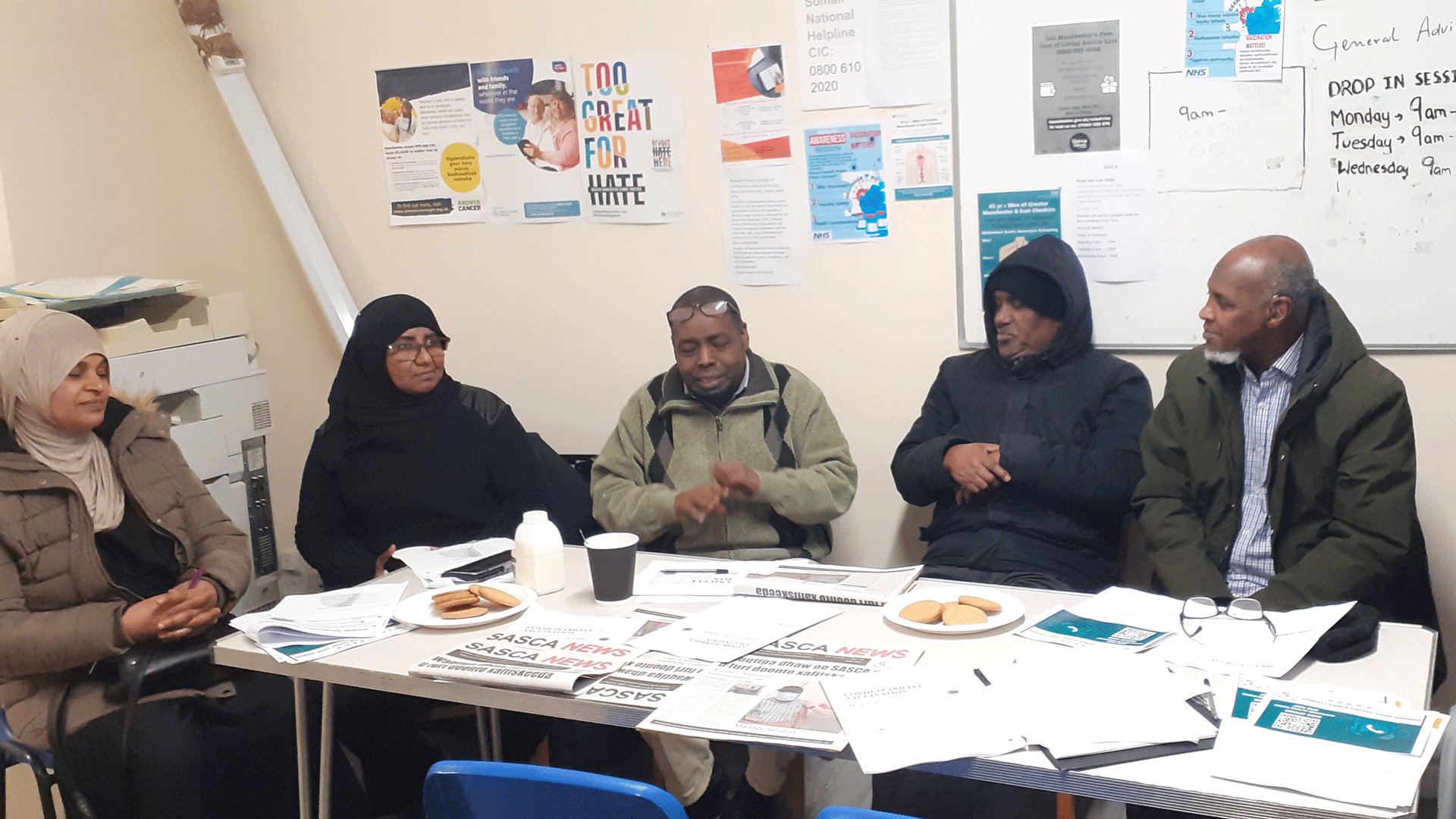In 1991, the outbreak of civil war in Somalia forced around 36,360 Somali people to flee to England and Wales. They were joined by a further 25,700 people in the years that followed, as tensions continued to flare in the country. Around 6,000 of those people found refuge in Manchester, with many settling in Moss Side, directly south of the city centre.
Moss Side itself was famously a focus for riots back in the early 1980s as violent unrest swept the country. In the 1990s, the suburb continued to garner negative press as part of the area dubbed “Gunchester”. But while riots erupted across much of the UK throughout August of this year, Moss Side seems to have been insulated thanks, in part, to strong community organising.
Multi-service youth hub Millennium Powerhouse, which opened in 1999, provides young people with a range of services from sports, arts and crafts, dance and music facilities to mental health and careers support.
Meanwhile, Somali Adult Social Care Agency (SASCA), founded in 2007, is run by the Somali community and offers support with benefits, housing, debt and immigration, as well as communicating with mainstream agencies such as the NHS, to support anyone in need in the Moss Side area.
After 17 years of service, SASCA recently found themselves facing closure when Manchester City Council cut their core funding. But a £217,000 grant from the National Lottery has secured their future for the next three years. Among other impacts, this will enable the organisation, which has been run by volunteers since its formation, to employ a full-time manager – Manchester’s first Somali councillor, Mahadi Mahamed.
The funding will also allow SASCA to expand their service from three to five days per week, which will enable them to do more to serve the local community with shorter waiting times and less strain on volunteers. “We see 350-400 people a week,” says trustee Dave Porter, founder of bilingual community newspaper SASCA News.





